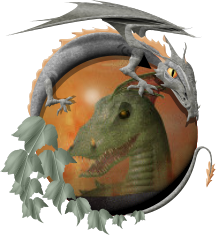- Cities and buildings
- Fields, plains and deserts
- Forests
- Hills and mountains
- Islands and promontories
- Lands, realms and regions
- Rivers and lakes
- Seas and oceans


 |
||||
|


Which personality type are you?
Take the Free mydiscprofile Personality Test to discover your core personality and your ideal job.   Which personality type are you? |
|
A type of Dragon found in the northern parts of Middle-earth, and perhaps elsewhere. The most famous long-worm (and in fact the only one that Tolkien explicitly identifies) was Scatha of Ered Mithrin, who preyed on the Dwarves and Men of the Grey Mountains, and was slain by Fram of the Éothéod. Though Tolkien gives almost no clues about long-worms in the text of The Lord of the Rings, his illustrations of Dragons give us some further hints. Tolkien's Dragons tend to be sinuous, serpentine creatures, having the appearance almost of a winged snake rather than the more traditional Dragon-form. This would explain the term 'long-worm' easily. It's interesting to note that Tolkien gave this form to another northern Dragon, Smaug, which strongly suggests that he, too, was one of the long-worms. It should be noted that Tolkien doesn't conclusively refer to long-worms as a 'type' of Dragon, and it is just possible that 'long-worm' is simply another word for 'Dragon'. This doesn't seem very likely, though: if all worms are long, why call them 'long-worms'? Of course, if we assume that long-worms are a 'subspecies' of Dragon, there must be other, less long, types. Notes
See also...For acknowledgements and references, see the Disclaimer & Bibliography page. Original content © copyright Mark Fisher 1999, 2001. All rights reserved. For conditions of reuse, see the Site FAQ. Website services kindly sponsored by Discus from Axiom Software Ltd.In-depth but accessible, Discus provides the ultimate in DISC reporting. |